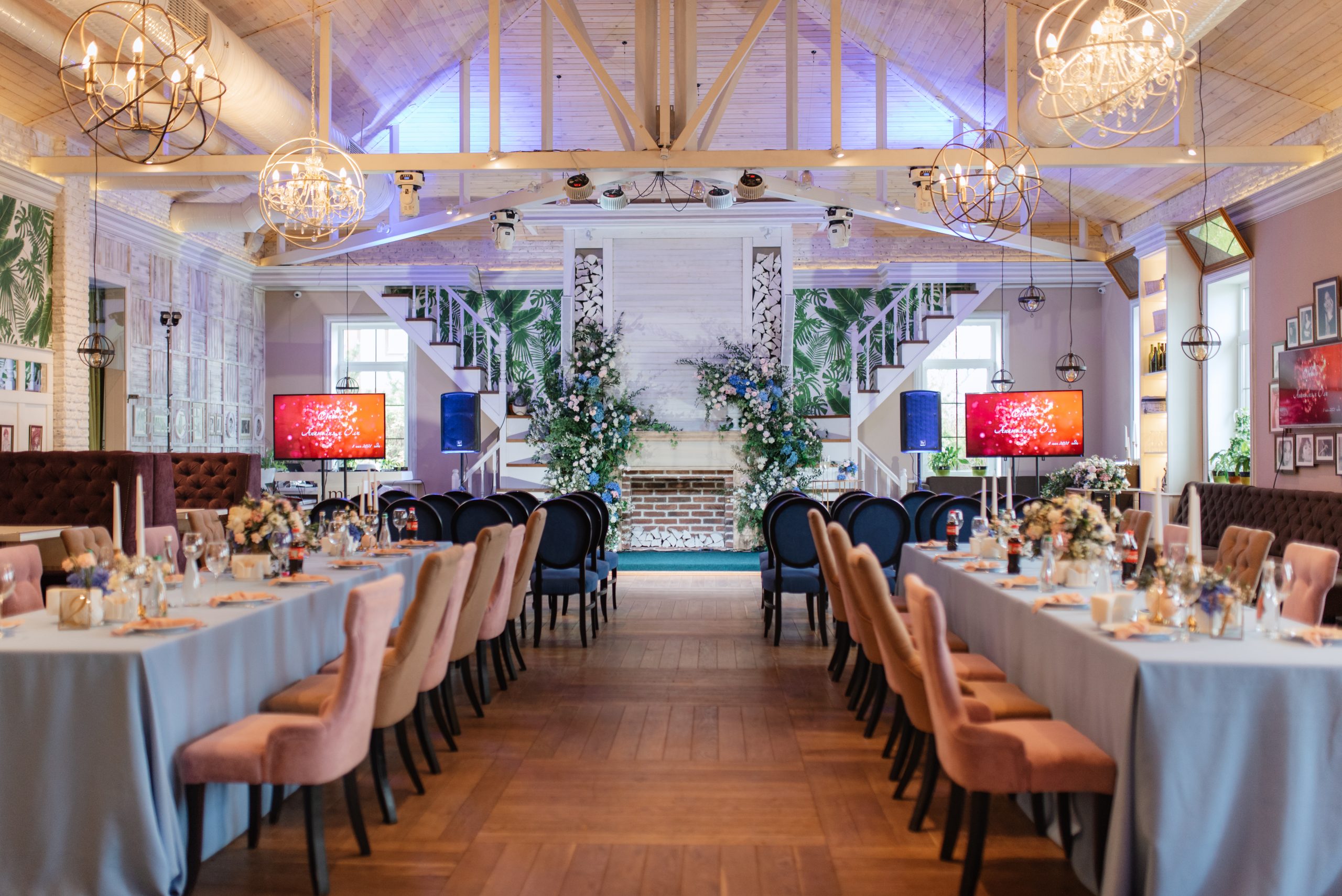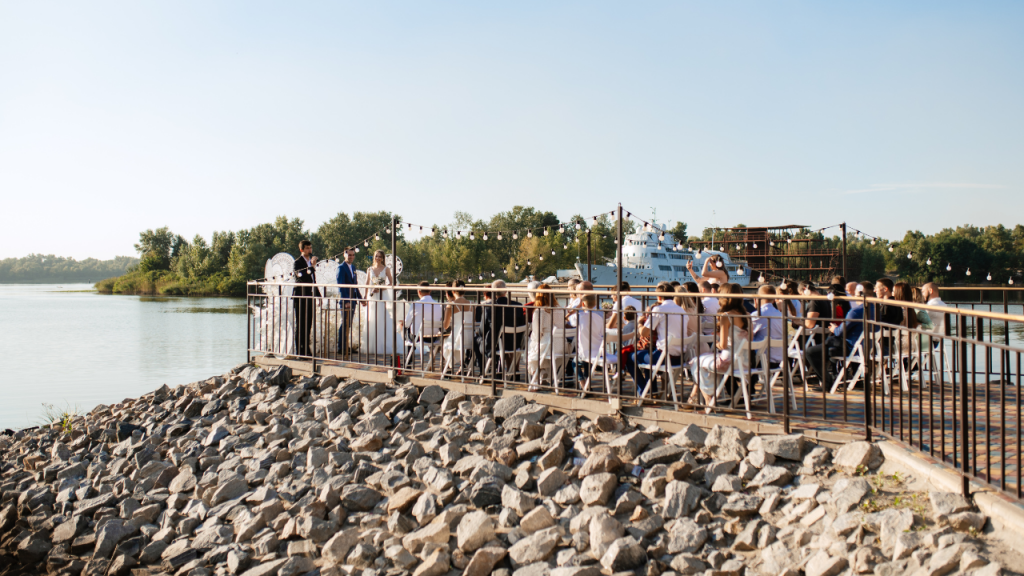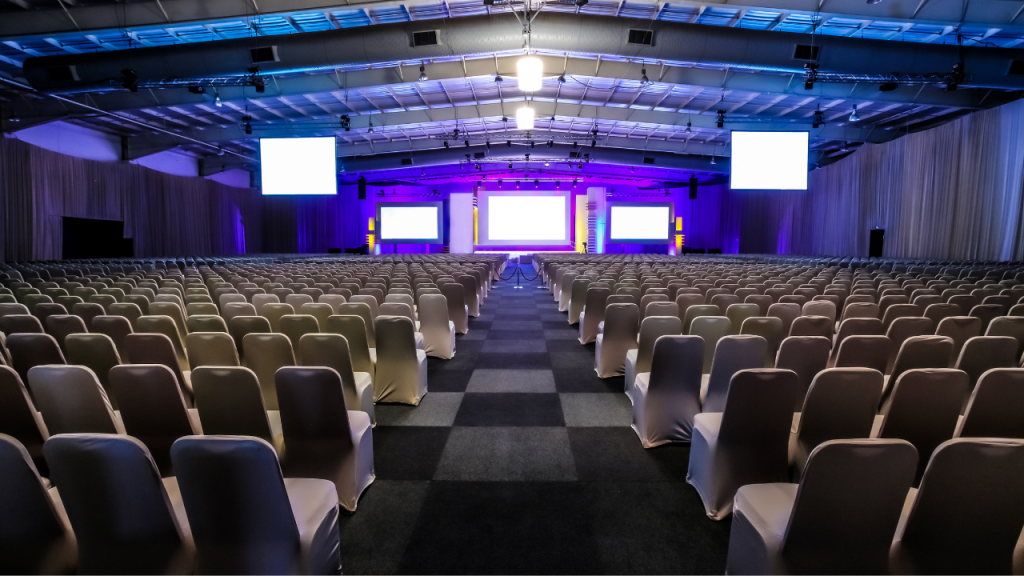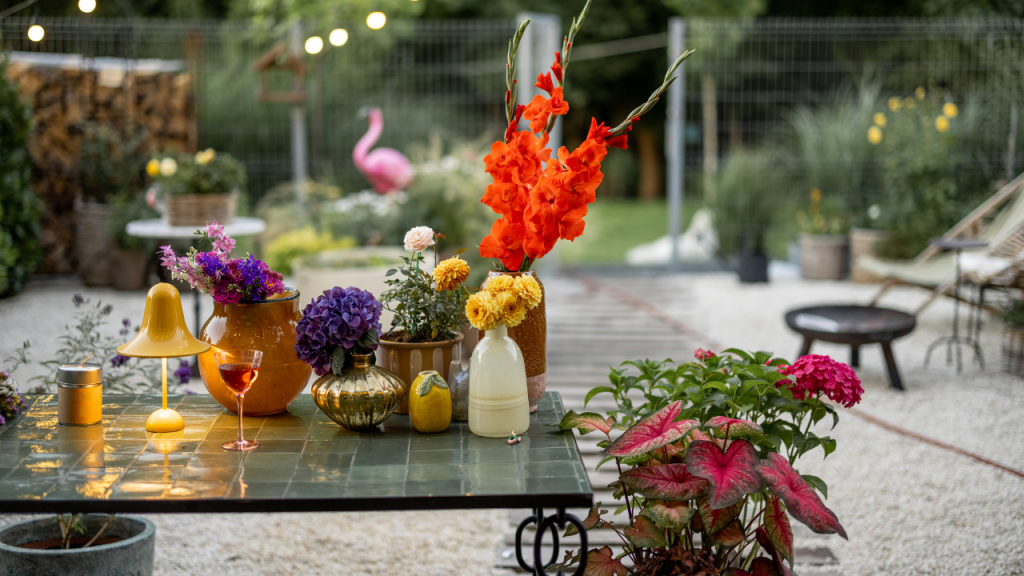
Selecting the right venue is one of the most critical aspects of planning an event. The venue sets the tone, impacts attendance, and influences the overall experience of your guests. Whether you’re organizing a corporate conference, a wedding, a seminar, or a birthday party, the venue should align with your event’s goals and the preferences of your guests. This guide will walk you through the essential factors to consider when choosing the perfect event venue.
1. Define Your Event Requirements

Before you start exploring venues, it’s crucial to have a clear understanding of your event requirements. This step will help you narrow down your options and choose a venue that perfectly suits your event’s needs.
Event Type
Different types of events have different needs. For example, a formal corporate meeting requires a different atmosphere than a festive wedding or a lively birthday party. Identifying the type of event you’re planning will guide you in selecting a venue that matches the desired atmosphere.
Guest Count
Knowing how many attendees you expect will help narrow down your options. Ensure the venue can accommodate your guest list comfortably, allowing for mingling and movement. The size of your event will determine whether you need small event venues, large corporate event venues, or international event venues capable of hosting guests from around the world.
Event Goals
What do you want to achieve? Define your event’s objectives—whether it’s networking, education, or entertainment. This will guide your venue selection and setup, ensuring the space aligns with your goals.
2. Location

The venue’s location can make or break your event. It’s crucial to choose a location that is convenient and accessible for all attendees.
Accessibility
Choose a location that is easily accessible for your guests. Consider proximity to public transportation options, parking availability, and ease of access for individuals with disabilities. A venue that’s easy to get to can increase attendance rates significantly.
Surrounding Amenities
Look for venues situated near hotels, restaurants, and other amenities. This is especially important for multi-day events or guests traveling from out of town. Proximity to these facilities can enhance the overall experience by making it convenient for your guests.
3. Venue Capacity and Layout

Once you’ve identified potential venues, evaluating their capacity and layout is crucial. The space should comfortably accommodate your guests and allow for smooth movement and transitions.
Room Size
Ensure the venue can comfortably accommodate your guest count. An oversized room may have a chilly atmosphere, while a cramped space can be uncomfortable. Look for venues with flexible seating arrangements to suit various setups—such as theater, classroom, or banquet style.
Flow and Accessibility Within the Venue
Consider how guests will navigate within the venue. An ideal layout allows for easy movement from one area to another, especially if your event has multiple activities or breakout sessions. Space for registration, networking, and refreshment areas also enhances the overall experience.
4. Amenities and Services

Analyze the amenities and services offered by potential venues. These features can significantly impact the success of your event.
Technical Equipment and Services
Assess the technical capabilities available at the venue, including audio-visual (AV) equipment, Wi-Fi connectivity, and any in-house support services.
Audio-Visual Capabilities
Ensure the venue has the necessary AV equipment, such as projectors, screens, microphones, speakers, and lighting. Having in-house AV support can simplify event setup and ensure everything runs smoothly.
Wi-Fi and Connectivity
Reliable internet access is essential. Ensure the venue can provide a strong Wi-Fi connection that can handle the needs of your event, especially if you plan to stream content or have multiple devices connected.
Catering Options
Consider the catering services available at the venue. Some venues have in-house catering, while others may allow you to bring in outside caterers. Ensure the venue can accommodate dietary restrictions and preferences, such as vegetarian, vegan, gluten-free, or allergen-free options.
5. Venue Ambiance and Aesthetics

The overall feel of the venue plays a significant role in setting the tone for your event. It’s essential to select a space that aligns with the theme and purpose of your gathering.
Style and Design
When visiting potential venues, pay attention to their architectural style and interior design. The venue’s decor should complement your theme and enhance the experience for your attendees.
Natural Light and Views
Natural light can dramatically impact the ambiance of a space. Venues with large windows or skylights create an open and inviting atmosphere. Consider the views surrounding the venue, as scenic backdrops can add a unique element to your event.
Outdoor Spaces
If your event allows for it, look for venues that offer outdoor event venues. Outdoor areas can provide a refreshing escape for guests and create a relaxed atmosphere, particularly beneficial for events like weddings, corporate retreats, or networking sessions.
6. Special Considerations for Different Event Types
Different events require different types of venues. Whether you’re planning a small gathering, a large corporate event, or an international conference, the venue you choose should meet the specific needs of your event.
Small Event Venues
For intimate gatherings, small event venues are ideal. These venues should offer a cozy atmosphere that makes guests feel comfortable and engaged.
Corporate Event Venues
Corporate event venues should provide a professional setting with all the necessary amenities, such as conference rooms, AV equipment, and Wi-Fi. These venues are designed to facilitate networking, presentations, and business discussions. See our article on cooperate event planning to learn more
International Event Venues
When hosting an international event, it’s crucial to choose a venue with global accessibility. Consider proximity to major airports, hotels, and transport hubs. International event venues should also have the capacity to handle large audiences and offer translation services if necessary.
Outdoor Event Venues
Outdoor event venues are perfect for events that benefit from a natural setting. Whether it’s a garden, beach, or park, outdoor venues add a unique ambiance to your event. However, always have a contingency plan in case of inclement weather.
Conclusion
Choosing the right event venue is a critical decision that requires careful consideration of various factors, including the event type, guest count, location, amenities, and ambiance. By understanding your event requirements and aligning them with the perfect venue, you can create a memorable experience for your guests, whether it’s a small gathering, a corporate event, or an international conference.
Are you planning to host a live stream for your event?
Ensure it stands out with a reliable and feature-rich platform. Laparizone offers everything you need to create an engaging and memorable virtual event, from smooth streaming to interactive tools. Take your event to the next level with Laparizone and captivate your audience from start to finish.








